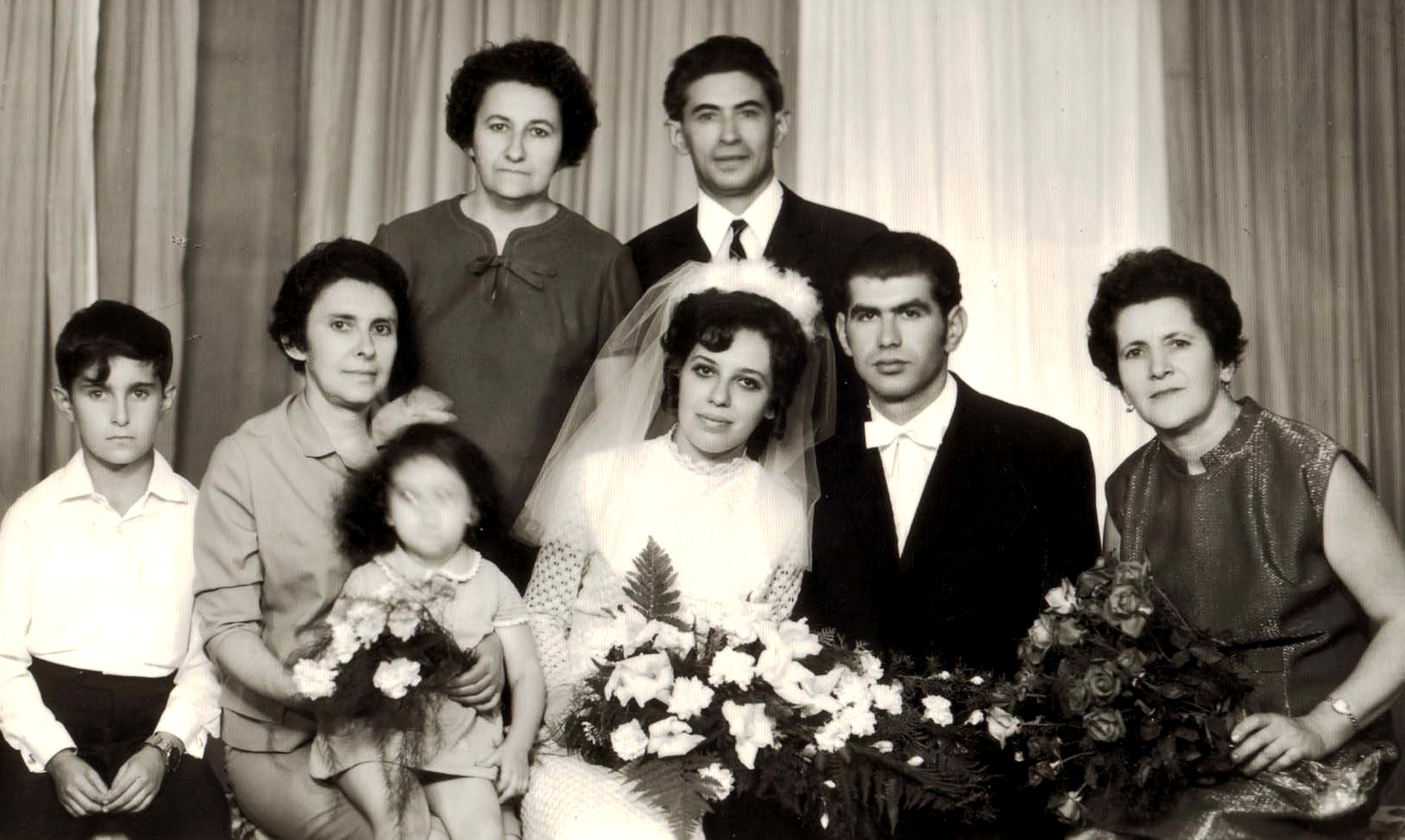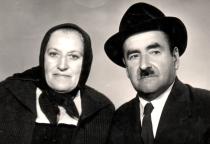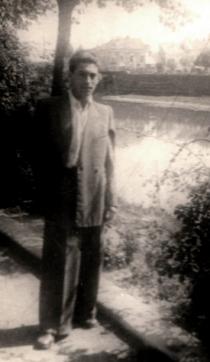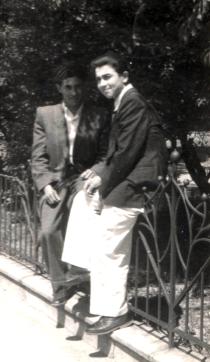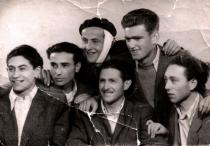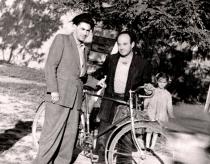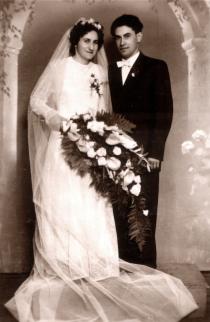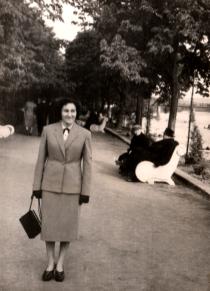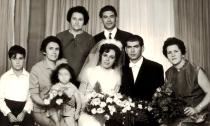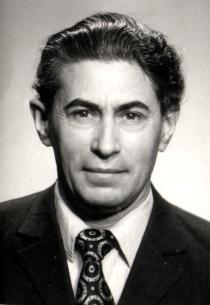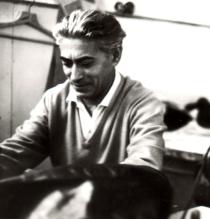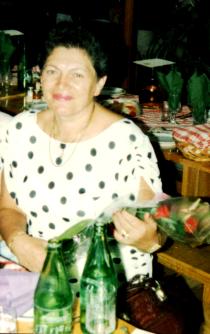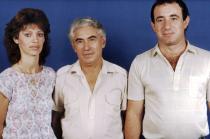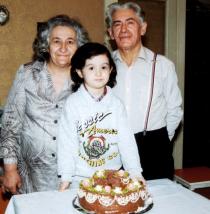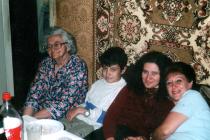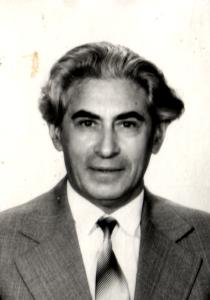This is our family at the wedding of my niece Rita (my wife older sister Anna's daughter). This is me, Ignaz Neubauer, and my wife Lubov Neubauer in the upper row. The lower row from left to right: my son Alik Neubauer, my wife's sister Donia Kerzhner holding my daughter Marina Neubauer, the bride Rita and the bridegroom Alexandr Bertalon, my wife's sister Anna Kerzhner. 1972. Uzhgorod, the Palace of nuptials.
We got married in 1957. In 1959 our first baby was born. We named our son Avrum after my father. In 1968 our daughter Marina was born. We gave her the Jewish name of Meita after my wife's mother, who had died one year before our daughter was born. My wife and I spoke Yiddish for the most part.
Our children studied at school and were pioneers and Komsomol members. I didn't mid this. They were growing up in this country and it was better for them to be no different from others. Still my wife and I told our children about Jewish traditions and Jewish history, but we also told them to not discuss this with anybody else. We celebrated Jewish holidays at home. I didn't go to the synagogue, but I prayed at home. I had a tallit, a tefillin and a prayer book.
My wife's older sister Anna married a military man who had also arrived from the USSR. In 1948 their daughter Rita was born. In 1955 he died. She never remarried. She worked and raised her daughter. Their sister Donia was beautiful, but she couldn't find a husband. She couldn't choose for a long time and lived her life single.
The longer I lived in the soviet regime, the more I hated it. There was no freedom in the USSR and we got used to freedoms in Subcarpathia, particularly during the Czech rule. We could speak our minds without suspecting KGB informers in everybody else. Besides, we lived near the border and to travel to another town we had to obtain a permit from militia and have our passports stamped. We couldn't buy train tickets if we didn't have a stamp; and there was another stamp to be obtained for each trip. We could only walk in the town with our passport. Could one live in this country? It was also hard from the material point of view. There were lines in stores and one had to stand for hours before buying a thing. What is this country like where people are not free and also, are miserably poor! For me to love this country, the country had to love me, but we lived like it was a prison. Sometimes it seemed to me that we had more freedom in the concentration camp.
When in the 1970s Jews began to move to Israel, I thought about it like it was a miraculous escape from everything I hated that the God sent me. My relatives also decided to emigrate. My mother and stepfather were the first to go. In 1972 my sister Hermina and her family moved to Qiriat Ono. I was eager to go to Israel, but my wife was against emigration. Her sisters supported her. They lived their lives in the USSR and were patriots of their country. They blindly believed the propaganda on the radio and in publications. They never gave it a deeper thought; they just believed what they heard. Their middle sister Donia, the children's doctor, was particularly stubborn about it. She was telling me that Israel is a capitalist country and capitalists were exploiters and working people had a very hard life there. I was trying to tell her that she had never practiced capitalism while I lived during capitalism and those were the best years of my life, that if a person had a good job, he could make his living and support his family well while with socialism it didn't matter whether one worked or he didn't, didn't matter - he will be miserably poor anyways. Besides, one feels a fool, when working hard he earns the same wages as lazy bones doing nothing. However, these were mere words for my wife and her sisters that they didn't make an effort to think about. So it happened that we stayed in the USSR. I didn't have much choice: emigration or the family and I chose the family.
